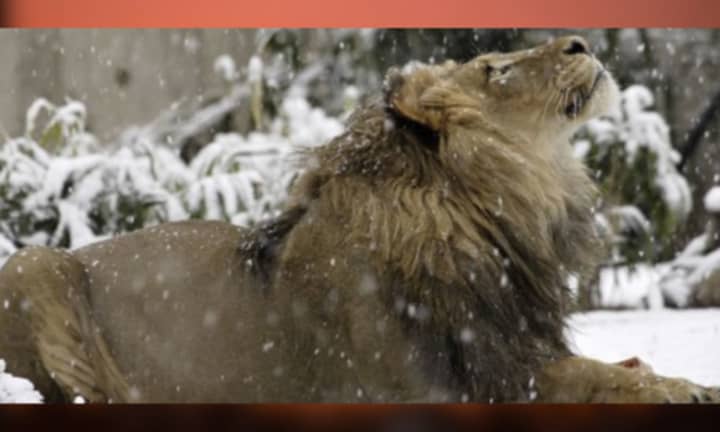Luke passed away on Wednesday, Oct. 19 after zookeepers noticed he was not bearing full weight on his right forelimb and had dropped weight. Luke had been treated for issues with his leg since 2016 for occasional discomfort and lameness.
After a comprehensive veterinary examination, the veterinary team decided to not perform surgery on the majestic lion due to the significant risk of complications with post-surgical care.
Over the years, the veterinary team administered various treatments for Luke’s spinal disease: steroid injections, anti-inflammatory medications, other oral pain medications, and deep-tissue laser therapy, electroacupuncture and dry-needle acupuncture on the affected areas.
Luke was born at a private reserve in South Africa in 2005 and arrived at the Zoo in October 2006. Luke was considered to be the most genetically valuable lion in the North American population at the time of his arrival, and was able to sire 13 surviving cubs from four litters to help further conservation and research of the species.
“Luke was truly the ‘king’ of the Great Cats exhibit,” said Craig Saffoe, curator of Great Cats, Kids’ Farm, Claws & Paws Pathway and Andean bears. “He was gentle with his mates, Naba and Shera, and an extremely patient and protective father to all 13 of the cubs he sired. Luke has left a lasting legacy, not only in the cubs he contributed to his species’ survival, but also in the millions of visitors who were able to gain a deeper knowledge of and appreciation for African lions because of who he was as the patriarch of his pride.”
Luke was able to give valuable insight into lion breeding and cub rearing behaviors to many conservation specialists. His contributions to his species’ survival helped add to scientists’ knowledge about African lion reproductive physiology.
Click here to follow Daily Voice Washington and receive free news updates.


